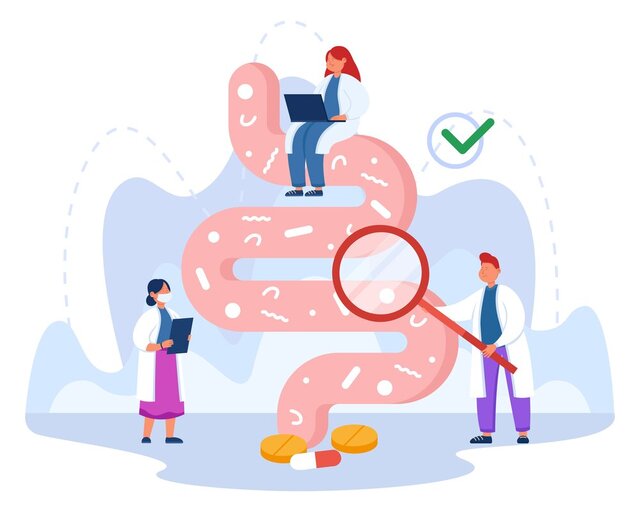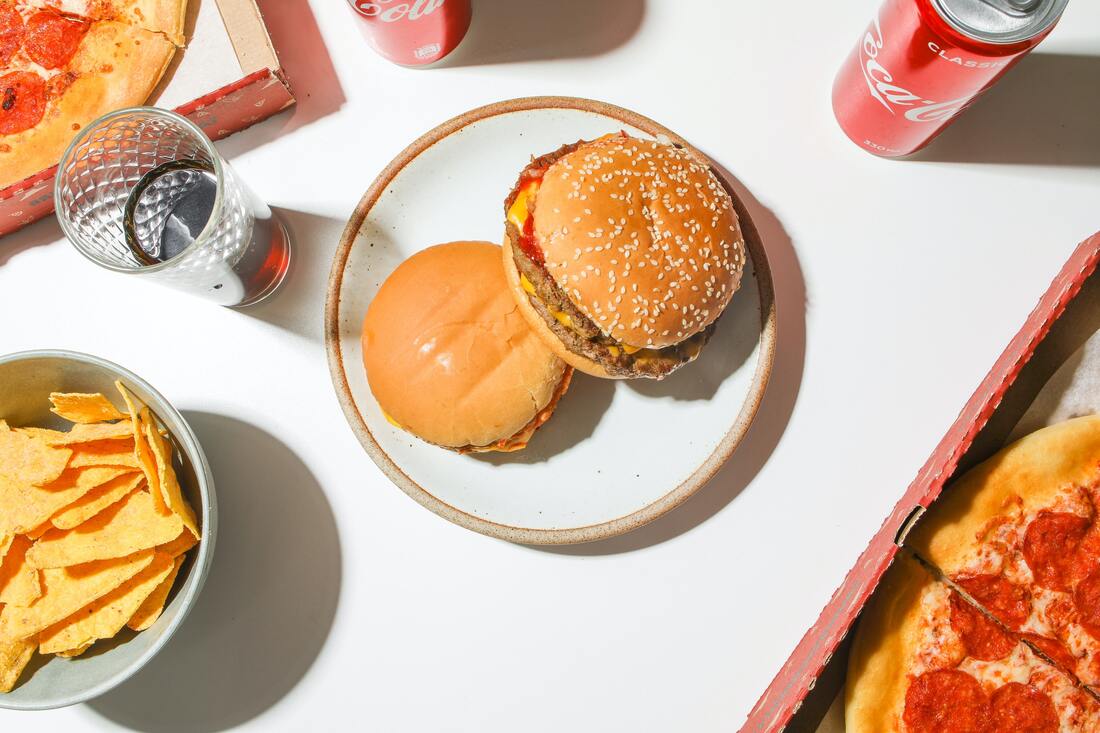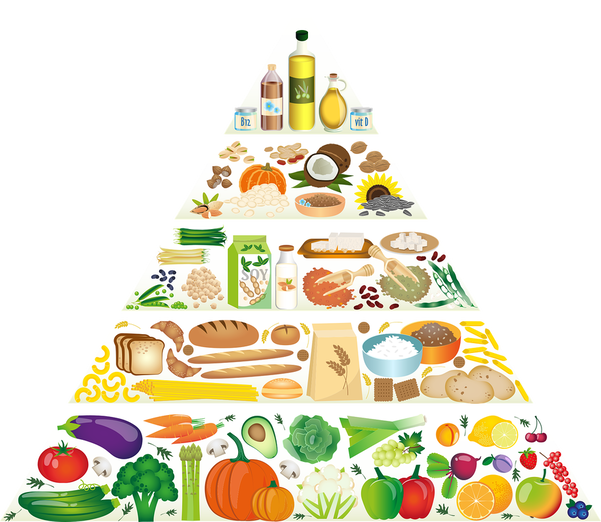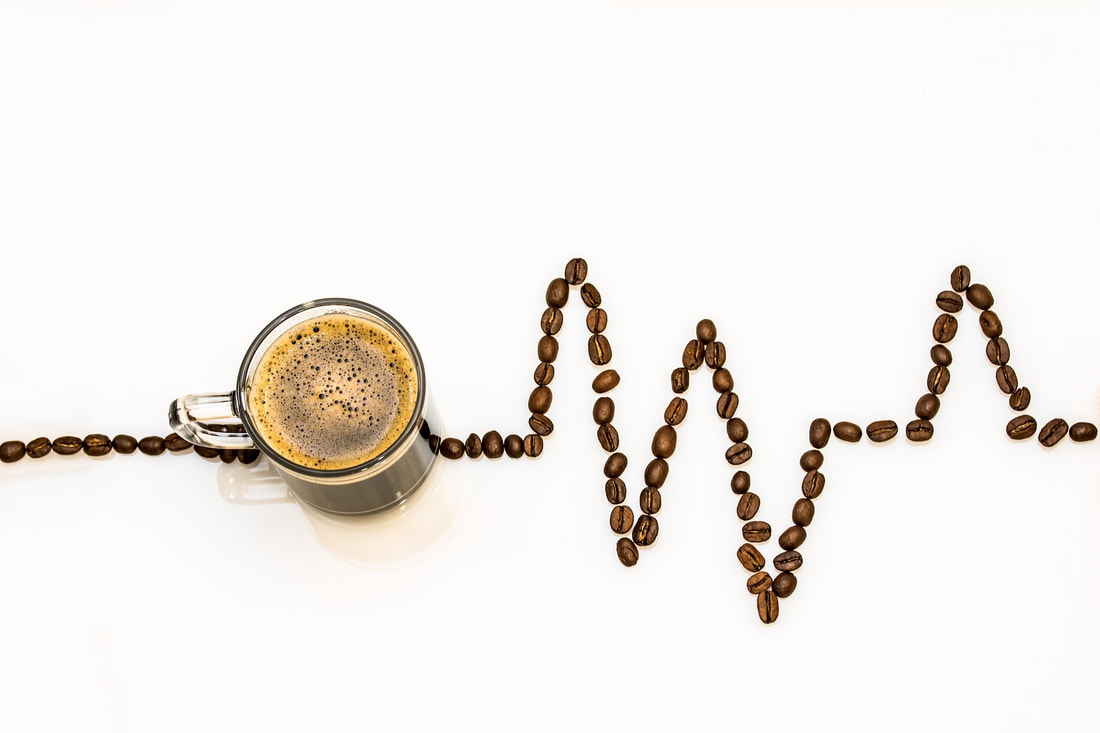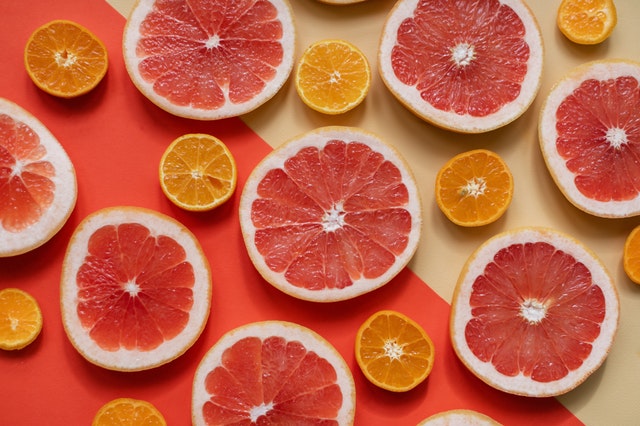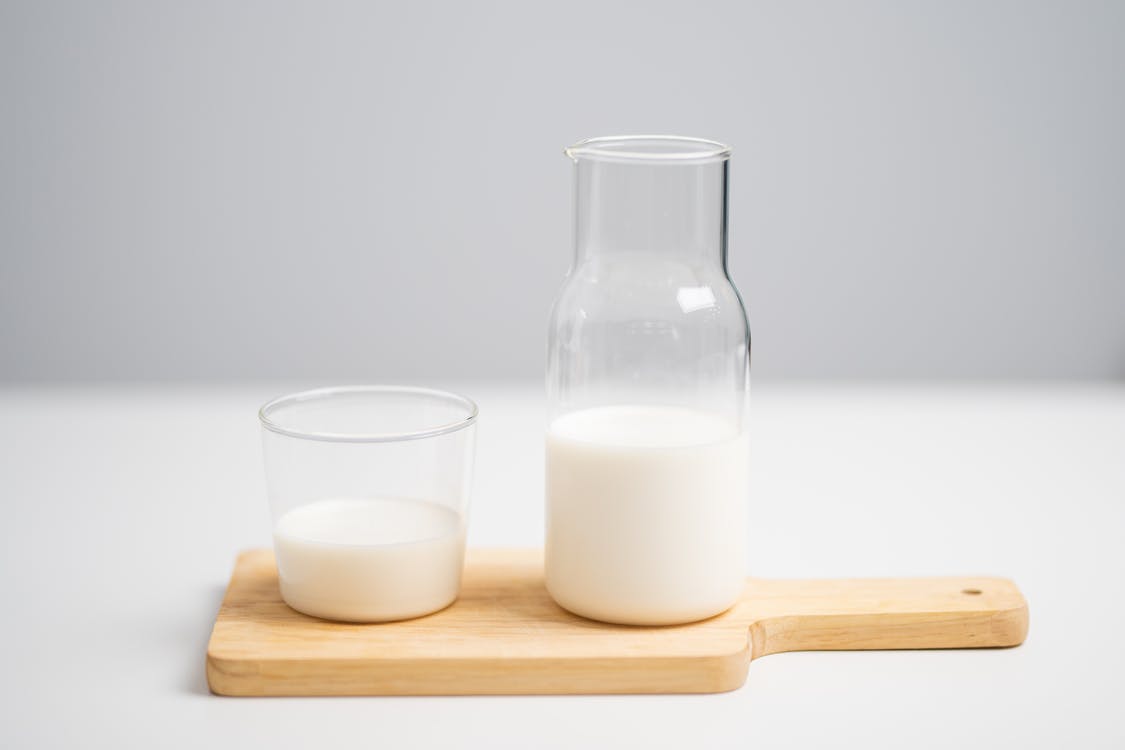The Health & Wellness section is dedicated to providing new, rapidly developing information about how to keep happy and healthy! Specifically, these articles focus on healthy eating and exercise as well as tips on how to avoid stress and maintain mental health.
The Influence of Physical Activity on Pre-Adolescent StressMichael Lee, March 31 2024
We are likely all familiar with stress. Childhood and preadolescent years in particular often come with greater exposure to stressful situations, such as school environments, family issues, conflicts with peers or teachers, and especially in the growing digital age, social media usage. Since those particularly vulnerable to stress could be at risk for underlying health conditions in the future, it may be important to take efforts to mitigate stress during such critical years of development. And while it’s no secret that physical activity can improve physical health, it could also play a role in managing the stress that occurs throughout one’s early youth.
Vertical Divider
|
Mindful Eating and the Mediterranean DietSatvik Saripalli, March 31 2024
Diet is a very important facet of people’s lives as most people consume 1-3 meals a day. What many people may not realize is how food portions and ingredients impact their physical and mental well-being. A recent study highlighted the relationship between participants adopting a Mediterranean diet with mindfulness practices and health improvement.
|
Roots to Renewal: Traditional Chinese Medicine and NeurogenesisJonathan Ng, March 31 2024
In recent years, there has been growing interest in the role of adult neurogenesis—the process by which new neurons are generated in the adult brain—in both health and disease. Emerging evidence suggests that adult neurogenesis plays a crucial role in various neurological and psychiatric disorders, making it an attractive target for therapeutic interventions. Traditional Chinese Medicine (TCM), with its rich history and diverse repertoire of herbal remedies, has emerged as a promising avenue for modulating adult neurogenesis and potentially offering new treatment options for these conditions.
Vertical Divider
|
Cancer? Have Some E. ColiLexi Tempera, March 31 2024
In an era where the quest for a cure for cancer remains at the forefront of scientific research, a recent breakthrough offers a glimmer of hope. In early 2023, scientists were able to harness the power of certain bacteria, known for their natural affinity for tumor environments, targeting and destroying cancer cells from within. This innovative approach represents a remarkable shift in oncology, using live bacteria to outmaneuver cancer in a way traditional therapies cannot.
|
Gut Feelings: Depression, Stress, and our MicrobiomeCatherine Lirtsman, March 31 2024
Stressed? Humans possess a stress response for survival, and while our lives today look different from our ancestors’, stress is still ingrained in everyday life. Chronic stress is a constant state of being overwhelmed. Unfortunately, the chronic stress response can promote harmful psychological and physiological issues, such as depressive disorders. Depression is a widespread mental health disorder in the United States, characterized by a sad, depressed mood, loss of interest, changes in appetite, and fatigue, and caused by elevated levels of the stress-related hormone cortisol in the brain.
Vertical Divider
|
A Young Addiction: Milk TeaErica Seo, March 31 2024
While it is already quite known among the public that caffeine, tobacco, and alcohol overconsumption have adverse effects, another substance has been rising in popularity over the past few years and may soon be officialized as a source of addiction: milk tea. This satisfyingly sweet tea is marked as a caffeinated, sugar-sweetened beverage, which is a drink that causes addictive symptoms like withdrawal and uncontrollable craving. To assess whether milk tea is an actual addiction and its side effects, the Journal of Affective Disorders published a study that surveyed 4078 young adults in China between the ages of 15 to 24 about their health and milk tea consumption.
|
How Gaming Addiction Can Cause Aggressive BehaviorKayla Ramos, December 29 2023
Gaming addiction is caused by playing video games for long periods of time. Some common signs of gaming addiction include anxiety, not wanting to participate in social events and gatherings, a decline in school grades, and many more. A specific type of game, known as massively multiplayer online role-playing games (MMORPGs), is known for getting the player very active in the game. This gaming genre allows players to make their own character and interact with other players.
Vertical Divider
|
Prevalence and Detriments of Excessive Screen Time in ChildrenCarolina Gura, March 31 2024
Exposure to digital screens has undergone a massive increase. Following the COVID-19 pandemic, screen viewing time (SVT) has increased drastically for both parents and children watching TV and using mobile devices. Schools were forced to go online by the pandemic, which gave rise to excessive SVT. SVT can be defined as the total time spent on any digital or electronic device. The American Academy of Pediatrics (AAP) recommends that children less than two years of age should not have any kind of SVT and that one hour of SVT per day is considered excessive among children ages two to five. Studies meant to determine the frequency, risk factors, and effects of excessive SVT have become more popular.
|
Healthy Body, Healthy BabyJonathan Ng, December 29 2023
Infertility is a widespread issue affecting 15% of reproductive-age couples, where lifestyle factors, such as diet and nutrition, play a pivotal role. Both male and female factors contribute to infertility, and "unexplained infertility" is a diagnosis faced by many couples. Research suggests that adopting well-planned dietary patterns can positively impact fertility and enhance healthy reproduction.
Vertical Divider
|
How to Effectively Reduce Period PainErica Seo, December 29 2023
What is the best way to combat period pain? Although NSAIDs (non-steroidal anti-inflammatory drugs) such as ibuprofen have been cited to be effective in reducing pain, it can come with side effects. As such, many studies have already researched non-pharmaceutical ways like exercise, electrical stimulation, and heat therapy as forms of treatment. Recently, it has been discovered that vitamins have a great effect as well.
|
Effect of Neurodynamic Mobilization on Carpal Tunnel SyndromeEmeline Wagner, December 29 2023
Carpal tunnel syndrome (CTS) is one of the most common neuropathy disorders, affecting 3-6% of adults. Carpal tunnel syndrome occurs when the median nerve, which controls the sensory and motor functions of the thumb and majority of fingers, is compressed within the carpal tunnel, an opening in the bone at the wrist. This leads to numbness, tingling, pain, and weakened grip strength in the fingers of the affected hand. CTS is commonly treated with splinting, steroids, anti-inflammatories, or surgery in extreme cases.
Vertical Divider
|
The Midday Nap: An Ultimate Memory, Mood, and Productivity BoostCharissa Mak, December 29 2023
In a world where approaching deadlines and endless to-do lists always keep us on the move, the idea of taking a mid-afternoon nap might seem like a distant luxury. Many workers are often encouraged to be constantly busy and productive, and the idea of simply taking a moment to rest is often frowned upon. Yet, new science whispers a revolutionary secret: the mid-afternoon nap can be a potential game changer, providing incredible benefits and offering a refreshing remedy for both the body and mind.
|
Relationship of Daily Step Counts to All-Cause Mortality and CVDCarolina Gura, December 29 2023
Walking is an activity with which all people are familiar. As smartphones and smartwatches become more commercially available, walking has become one of the most accurately measured types of physical activity. Specifically, when it comes to health benefits, studies have shown that an additional 1,000 steps are associated with a 12% to 15% reduced risk for all causes of mortality (death due to any cause) and cardiovascular diseases (CVD).
Vertical Divider
|
Earlier Start Times Correlated with Lower Grades and AttendanceYuki Duong, September 16 2023
Most people dislike waking up early for work, and students are no exception. In fact, university students who have early morning classes—and are generally not required to attend class—tend to oversleep or skip class in order to get more sleep. A recent study indicates that early morning classes correlated with fewer students attending classes as well as worse academic performance.
|
Correlations Between Personality Traits, Social Media Use, and DepressionMichael Lee, September 16 2023
In today’s digital age, nearly everyone carries a mobile device with them, often with popular social media apps like Instagram, Facebook, or Twitter. Most people have had some sort of exposure to the extreme prevalence of social media. Unfortunately, however, excessive usage of social media can potentially cause significant mental and developmental effects such as depression, which can be important to consider for young adults whose brains are still developing.
Vertical Divider
|
Animal-Sourced Foods—Are They Good or Bad?Juliette Williamson, September 16 2023
With the growing popularity of plant-based movements and increased awareness of the health and ethical risks of meat, the choice of what to include or take out of our diets has become an increasingly controversial issue. Do we eat meat or not? In January 2023, the Journal of Nutrition published a review on the topic reporting its findings. Animal-source foods (ASF), as defined by the journal, describe foods “derived from animals,” thus encompassing dairy, fish, and meat products. These foods have several health benefits that are less present in plant-based foods.
|
Avid Antibiotic Overuse: Can They Really Solve Colds?Catherine Lirtsman, September 16 2023
Should doctors jump straight to prescribing antibiotics for the common cold? Up to 50% of prescribed antibiotics are not actually necessary or do not effectively eliminate an upper respiratory infection (URI) because these are caused by viruses. However, in the case of many other conditions and diseases, antibiotics are an essential tool in the fight against bacterial infections, and they have saved countless lives since their discovery. Antibiotics are a type of medicine that kills off infections caused by bacteria. Antibiotics either eliminate the bacteria or stop them from spreading.
Vertical Divider
|
How Healthy Relationships Help Heart HealthAudrey Banzali-Marks, September 16 2023
Social interactions can come in many shapes and forms, from talking with a coworker during a meeting to arguing with a sibling over dinner. Socializing often influences mood; a positive exchange can bring joy, while a negative one has the power to ruin the entire day. On a deeper level, however, the types of interactions a person faces affect not only their emotional state, but also their physical state. As concluded in a 2023 study conducted at the University of California, San Francisco (UCSF), a higher amount of positive and lower amount of negative experiences over time is associated with better cardiovascular health, especially lower blood pressure reactivity.
|
The Brain Body Connection: How Jogging Can Improve Your MemoryEleanor Gorham, September 16 2023
People around the world use exercise to stay healthy. A simple and popular form of exercise is jogging. But what biological effect does jogging really have on the body? Jogging in specific was studied by a collaborative of researchers from the University of Tehran, among other institutions, in 2022. They explored the effects of jogging on mice and rats. The team found that a variety of distances, speeds, lengths of time, and duration of routine (weeks or months) had varying effects.
Vertical Divider
|
Online Grocery Shopping May Be Key to Better Nutrition HabitsKruthica Dama, April 2 2023
When we were younger, we were told that the key to a healthy diet was eating fresh fruits and vegetables. Today, since we know that a poor diet is the biggest risk factor for death globally, it’s more important than ever to be mindful of what to eat. As it turns out, simply increasing the amount of fresh produce available is not the solution to getting people to eat healthier diets; rather, educating people on better nutrition habits is a more effective way of getting people to eat healthier.
|
Is Chronic Back Pain Keeping You Awake?Emeline Wagner, April 2 2023
Lack of sleep is often greeted with advice like dropping caffeine and adjusting your bedtime routine, but these fixes do not solve all sleep problems. Oftentimes, insomniacs can be desperate enough to take sleeping pills; however, the root of the problem could be much easier to fix than treating the insomnia itself. Chronic pain has long been linked with insomnia and is considered pain lasting for three months or more. It can be caused by previous injury or ongoing medical issues, or even something as simple as lack of exercise or unhealthy posture.
Vertical Divider
|
The Three Way Link Between Vitamin D, the Gut, and Metabolic SyndromeJasmin Kumar, April 2 2023
Vitamin D has been linked to maintaining many important functions within the body such as maintaining cell reproduction, immune system regulation, and maintaining minerals like calcium and phosphorus. Metabolic syndrome is a condition characterized by high fat percentage in the body, high sugar levels, and high blood pressure. These are also characteristics of the disease of obesity. Researchers have been trying to find a connection between the intake of Vitamin D and the rate of metabolic syndrome to be able to explain the prevalence of low vitamin D and high rates of metabolic syndrome.
|
Ultra-Processed Food and Mental HealthMichael Lee, April 2 2023
Almost all people are familiar with junk food and have likely been told to avoid it growing up. Ultra-processed food includes foods made mostly from substances extracted from foods or artificial flavorings, colors, or other additives. Typical foods included in this category include sweets such as candy or cookies, as well as fast food and soda. Overconsumption of these kinds of foods can pose significant problems such as obesity, high blood pressure, or type 2 diabetes, to name a few. But while it’s no secret that ultra-processed can have a negative impact on physical health, a recent study also indicated that a poor diet can be correlated with a decline in mental health.
Vertical Divider
|
Can Creatine Timing Affect Your Performance and Muscle Gains?Ayushi Banerjee, April 2 2023
Creatine Monohydrate is one of the most used supplements among athletes and gym-goers as it effectively builds strength, improves endurance, and is considered to be safe to consume. Creatine monohydrate is a man-made version of creatine that is naturally made by the human body. The reason why creatine is such a widely used supplement is that creatine is one of the body’s sources of energy for contracting muscles. Creatine is mainly stored in the skeletal muscles, with a small amount stored in the heart and brain, so having filled creatine stores can enhance physical performance.
|
Regular Exercise for Irregular Menstrual Cycles: Managing PCOSAudrey Banzali-Marks, April 2 2023
Ramping up physical activity through exercise tends to aid with the management of many lifelong disorders, including heart disease, anxiety, diabetes, and high blood pressure. Fortunately, for people living with polycystic ovarian syndrome (PCOS), a disease that harms the female reproductive system, this lifestyle change appears to be an effective start at managing symptoms as well. PCOS is an endocrine disorder, which means that it affects the function of hormones. These are signals that tell different parts of the body what to do at different times; when their balance is thrown off, the internal clocks of many bodily functions are, too.
Vertical Divider
|
Maladaptive Behavior as a Contributor to Fear of Missing OutMichelle Yeung, April 2 2023
Although fear of missing out (FoMO) is not a diagnosable condition, the term is commonly used to describe thoughts of missing out on rewarding experiences in comparison to peers around you. Originating from Patrick McGinnis’s quoting of FoMO in his Harbus article in 2004, it has now become a commonly used phrase. In 18 to 34 year olds, it presents with symptoms such as sleep deprivation, emotional distress, and neglect of physical well-being. In the age of technology and social media, people tend to experience FoMO by comparing their own lives to the ideal image of others’ online presence.
|
Trouble Falling Asleep? It’s Not You, it’s the SeasonYuki Duong, April 2 2023
Getting enough sleep is crucial for good health. Adequate sleep can reduce the risk of obesity and heart attacks, help you recall more information, and strengthen your immune system. However, life happens, and it is hard to always get enough sleep. Many factors can affect sleep quality, such as stress from work or school, light exposure, emotions, and foods with caffeine or alcohol. A recent study focused on one of the factors that can affect sleep: light exposure. The study in question wanted to see if there was a relationship between seasonal changes in sunlight and changes in sleeping behavior in undergraduate college students.
Vertical Divider
|
Dietary Protein: Plants vs AnimalsWayne Chiang, April 2 2023
Protein is an essential macronutrient responsible for daily bodily functions. Protein is made up of 20 amino acids, 9 of which are essential meaning they are not produced by the body like the other 11. The essential amino acids are found in high amounts in animal-based products but are limited in plants. However, with the high environmental and health impacts of meat consumption, the spotlight is shifting towards plant-based diets as a source of protein. Animal meats have been linked to higher rates of obesity with rates up to 40% in American adults and other diseases such as heart disease. Studies have shown that it is not the type of diet, but the amount of protein consumed that affects muscle building.
|
Feeding the Fight Against Eczema: How Fiber Strengthens SkinAudrey Banzali-Marks, December 28 2022
Itchy skin is never fun. With a condition like atopic dermatitis (AD) — also known as eczema — this irritation can be constant. It typically first appears in children and may last well into adulthood. AD goes beyond simply having dry skin. Similar to allergies, the condition can flare up when certain triggers make the immune system go into overdrive. This happens because AD is linked with sensitive skin, which has a harder time defending itself against bacteria, allergens, and other irritants. As a result, the skin becomes inflamed, or swollen, and often appears like a rash. Luckily, there may be a way to reduce children’s risk of AD through a simple lifestyle change.
Vertical Divider
|
Syncing Menstrual Cycles to Exercise Type to Improve Fitness OutcomesSabrina Ghalambor, December 28 2022
The menstrual period has always been seen as a physiological burden for one week out of the month. Menstrual cycles and mitigation methods have often been overlooked and understudied in research, leading many people to seek their own methods of soothing their symptoms. Recently, there has been a rise in content surrounding cycle-synced workouts, particularly pushed through short-form video platforms like TikTok and Instagram Reels. Advocates say that coordinating one’s menstrual cycle with the type of exercise they do, and in some cases with the foods they eat, can have a wide range of benefits.
|
A Yearly Habit Can Save Your Life: Breast Cancer ScreeningCatherine Lirtsman, December 28 2022
Breast cancer is a form of cancer starting in the breast. Although breast cancer primarily develops in women, it can also occur in men. Breast cancer develops when cells in the breast begin to grow out of control, causing problems like masses, which are unusual lumps under the skin, and pain. Over time, the cancer can eventually spread to the rest of the body. For women in the United States, breast cancer is the most common cancer — one in eight American women may have breast cancer in their lifetime. These are frightening numbers, but fortunately, the rates of survival of breast cancer have been increasing for the past 30 years.
Vertical Divider
|
Can Physical Activity Levels Impact PMS Symptoms?Ayushi Banerjee, December 28 2022
Menstrual cycles can be an uncomfortable period for people that menstruate due to symptoms such as increased bloating, mood swings, sleeping disturbances, and food cravings. Although this is normal to experience during a menstrual cycle, it is possible to experience similar symptoms the days leading up to a menstrual cycle, which is called premenstrual syndrome (PMS). PMS is not a medical condition, but a cluster of various physical, mental, and emotional changes that menstruators can experience.
|
Impact of Coffee Subtypes on Cardiovascular DiseaseMichelle Yeung, December 28 2022
Coffee is a common go-to drink when you need to wake up in the morning before class or stay up late working. This energy boost is caused by a substance in coffee called caffeine. While many are informed about coffee’s negative side effects such as restlessness and anxiety, research from the UK Biobank database in September 2022 demonstrates that coffee may be associated with a decreased risk of cardiovascular disease (CVD). The paper compares the effects of ground coffee, instant coffee, and decaffeinated coffee on CVD using a collection of information from 449,564 individuals who self-reported their coffee consumption and CVD-related effects, such as coronary heart disease and congestive heart failure.
Vertical Divider
|
A Leading Cause of Inflammatory Bowel Disease May Be in Your FoodEleanor Gorham, December 28 2022
Inflammatory bowel disease (IBD) affects about 3.1 million patients in the United States (US). Worldwide, the number is around 10 million. Unlike most other diseases, IBD is more prevalent in industrialized countries, which is surprising because anti-disease measures such as large-scale sanitation are more prevalent in developing countries. High rates of sanitation have a strong correlation to low levels of infectious diseases globally. The high incidence of IBD in industrialized countries suggests that it is linked to chemicals prevalent due to industrialization. A group of doctors led by Liliana Sanmarco from Harvard Medical School recently published an article in May of 2021.
|
Identifying and Treated Heat-related IllnessNeel Sharma, December 28 2022
One of the most pressing modern-day issues is climate change. In many parts of the world, the effects of climate change are presenting themselves through rising temperatures in a phenomenon known as global warming. In fact, for almost a decade there have been record breaking temperatures throughout the planet, which has led to collateral damages such as a severe rise in heat related illness. And while the emphasis should be placed on trying to remedy the actions that have led us to this bleak state, it is equally important to equip individuals with the necessary tools to combat heat related illness. Heat-related illness can develop or appear in a variety of ways depending on its relative severity.
Vertical Divider
|
How To Make More of the Good YearsAnna Chassion, December 28 2022
As another year comes to an end, one may wonder how many of those they have left. Or, more importantly, how many good ones, before their quality of life starts to decline. Luckily, experts at the World Health Organization (WHO) have been investigating a way to make more of the good years — or rather, less of the bad ones — formally called disability-adjusted life years, or DALYs. According to WHO, central nervous system (CNS) disorders are the number one cause of DALYs. In this position paper by WHO, dementia, a common CNS disorder was investigated. Dementia is loss of brain function that is severe enough to affect one’s daily life, especially when it comes to memory, problem solving, language skills, and the ability to make sense of what you see.
|
The Relationship Between Maternal and Child Mental HealthSela Jasim, September 26 2022
Mental health, put simply, refers to the state of our thoughts, emotions, and behaviors. Declining mental health can be characterized by a lack of emotional or psychological well-being, which can present itself in many ways. For many, different mental health disorders can arise, such as depression, anxiety, bipolar disorder, etc. Individuals struggling with depression face unique and challenging symptoms. In a recent study, researchers found that maternal depression and stress can affect the mental health of their children. Furthermore, researchers found that the reverse also holds true.
Vertical Divider
|
Why Choosing the Right Sports Bra MattersAyushi Banerjee, September 26 2022
Sports bras are a supportive piece of clothing for people with breasts that are worn during physical activity to hold breasts in place. Breasts are made up of soft tissues that lay on top of muscles that need support during exercise. When breasts experience more motion, the individual’s biomechanics change, leading to both back and breast pain. Breast pain already affects 60% of females when they are not active, which is why proper fitting sports bras are imperative for all females. A lack of breast support has been found to also decrease self-confidence, which can decrease females’ willingness to be physically active.
|
A Movement For Movement—Productivity and Well-Being from DanceLandon Park, September 26 2022
With the presence of mental health issues increasing worldwide, including depression (evidenced by a 2014 study by researchers from the University College London), many developed nations have focused on public health marketing and various organizations globally have employed workplace interventions to improve employee well-being. In the midst of the pandemic, people are searching for different ways to combat the resulting social and mental isolation. One of these activities could be dance.
Vertical Divider
|
Does Sleep Position Affect Sleep Quality?Erin Tabornal, September 26 2022
In today’s wellness culture there have been many products advertised to provide better quality of sleep, including weighted blankets, blackout curtains, and even sunrise alarms that provide white noise. Despite all these products, some researchers have begun investigating whether the answer to sleep quality is as simple as an individual’s sleep position. Oftentimes, people use the colloquial phrase “I slept wrong” when referring to waking up with a stiff neck or back pain. Previous studies postulated that poor sleep posture during a night’s rest may contribute to cervical and lumbar pain.
|
Emotional Intelligence and Academic Life During COVID-19Shannon Huang, September 26 2022
During the coronavirus disease (COVID-19) pandemic, many students and teachers have been forced to transition to a blended learning format, a learning approach that combines online learning opportunities with the traditional in-person classroom approach. This transition may have affected students’ study habits and cognitive engagement. Thus, a recent Chinese research study aimed to explore the direct and indirect relationship between several important characteristics of students in blended learning environments: their emotional intelligence, study habits, and cognitive engagement.
Vertical Divider
|
Running Towards Better HealthMelody Zaki, September 26 2022
Running is a powerful tool for those who are looking to take care of their health. However, it can be very difficult to start your running journey.
Why is running good for you? Running for at least 10 minutes daily has been found to significantly decrease an individual's risk of developing cardiovascular disease. It also helps to reduce the risk of developing diabetes and eases symptoms of depression and anxiety. A study conducted by Damrongthai et al. found that running conferred more mental health benefits as opposed to other types of exercise (like pedaling). |
Mindfulness: The New Future of Mental Health?Marissa Pennino, April 25 2022
Mindfulness can be described as a type of meditation that focuses on intentional awareness and sensations occuring in the moment. Mindfulness is not only a skill, but can also be a lifestyle. It is a way to live day-to-day with a non-judgemental attitude; learners are instructed to focus on feelings and sensations without interpreting or judging them. Many find this focus on “the now” important in unwinding from the hectic nature of life and in releasing negative emotions. Building upon past research studies that attempted to investigate the link between mindfulness and mental health, a large-scale study published in 2021 found that engaging in mindfulness meditation did lead to feelings of decreased stress and increased productivity amongst participants.
Vertical Divider
|
Apart from Antibiotics: The Potential of Essential OilsLandon Park, April 25 2022
In the wake of increasing antibiotic resistance, essential oils (EOs) are being studied as an alternative to the diminishing supply of antimicrobial drugs caused by their overuse and misprescription. EOs, which are produced by and extracted from plants, contain organic compounds that have been found to protect against pathogens (disease-causing agents), insects, and herbivores, but humans have also been finding ways to use them medically. In 2021, researchers from the United Arab Emirates, Iran, and Malaysia published a review of the potential therapeutic properties of EOs, including their antibacterial, antifungal, antiviral, and synergistic (relating to the interaction of multiple different substances) characteristics.
|
The Impact of Increased Screen Time on ChildrenSubashni Rajiv, April 25 2022
Pediatric obesity, the excessive buildup of fat on the body, is the most common nutritional disorder that affects children and adolescents worldwide. From 1975 to 2016, the global cases of obese children between the ages of 5 to 19 increased from 4% to 18%. Obesity is a major health concern as it can increase the risk of developing other health conditions. Increased screen time (the time spent watching television or using an electronic device) has contributed to the growing number of obesity cases. Screen media exposure can alter people’s eating habits and reduce their length of sleep. To promote healthier weight in children, a study was conducted to observe the effect of parenting screen time on television viewing time and children’s weight.
Vertical Divider
|
Using E-cigarettes to Quit SmokingSela Jasim, April 25 2022
Cigarette smoking is associated with many negative health effects, including increased risk of stroke, heart attack, lung cancer, cardiovascular diseases, and more. These risks are largely due to the large quantity of chemicals in cigarettes, many of which are addictive as well as harmful to the lungs and blood. In recent years, as these risks have become more well-known, for many individuals who smoke, stopping cigarette use has become an important goal. Electronic cigarettes, commonly known as e-cigarettes, are often marketed as a tool to help smokers quit using cigarettes. However, a recent study has shown that using e-cigarettes may not help smokers quit but instead makes them more likely to relapse.
|
Can Eating Mushrooms Improve Depression?Anjali Roy, April 25 2022
Maintaining physical health is important, but mental health often plays an equally significant role in shaping one’s well-being, especially when it comes to depression. Clinical depression is a mental health illness characterized by negative feelings and low self-esteem that can make normal tasks more difficult and impact quality of life. Although there is currently no cure for depression, there are effective treatment options, such as medications and psychotherapy (sometimes called talk therapy). However, researchers want to explore additional options to treat depression, particularly simpler ones that involve changes in diet. A recent study from Pennsylvania State University (PSU) found a potential correlation between eating mushrooms and reduced symptoms of depression in adults.
Vertical Divider
|
Can Oral Contraceptives Help Build More Muscle?Ayushi Banerjee, January 18 2022
Resistance training is any type of exercise that increases both the strength and endurance of muscles. Engaging in regular resistance training is crucial for staying in good physical health because it can help maintain and build muscle, prevent a decrease in bone density, increase flexibility and mobility, improve metabolic markers, and increase the basal metabolic rate. Oral contraceptives are medications used to prevent pregnancy. Although oral contraceptives are commonly used by females in the general population, an estimated 20-70% of elite female athletes also use them. However, little is known about how they affect muscle growth and resistance training outcomes. To learn about the potential interaction between oral contraceptives and muscle growth, researchers from Denmark conducted a study to investigate several factors regarding the effects of these pills on muscle growth.
|
The Cycle of Life: Menstruation and Women's HealthErin Tabornal, January 18 2022
Functional hypothalamic amenorrhea (FHA) is a term used to describe the total absence of menstruation for at least three months due to stressors that include rapid weight loss, inadequate nutrition, excessive and strenuous exercise, traumatic physiological experiences, or even genetic predispositions. FHA corresponds to prolonged estrogen deficiency, which can have short-term and long-term effects on women’s health. Women suffering from FHA are at a greater risk of developing problems in their reproductive, cardiovascular, and skeletal systems. They are also at greater risk of developing mood disorders such as anxiety and depression.
Vertical Divider
|
The Effects of Consuming Whole-Fat Dairy vs. Reduced-Fat DairySela Jasim, January 18 2022
Dairy products, when consumed in moderation, can be a beneficial source of calcium, vitamin D, and protein. In recent years, reduced-fat dairy products have been marketed as the healthier alternative to whole-fat dairy products. This is because foods and drinks high in saturated fat can be harmful to one’s health. However, newer research has found that there may not be a significant difference in the effects of consuming reduced-fat dairy rather than whole-fat dairy. In a recent study, researchers conducted an experiment in which children aged four to six years old consumed two different types of dairy products and assessed their health using several measures after three months.
|
The Right Nutrients Can Help Improve Lung HealthAudrey Banzali-Marks, January 18 2022
One of the leading global causes of adult deaths is chronic obstructive pulmonary disease (COPD), a condition that harms overall lung function and causes various breathing problems, such as excessive coughing and shortness of breath. Smoking is the main behavioral factor that leads to COPD, but its progression is also heavily influenced by environmental factors that are harder for individuals to control, such as air pollution and exposure to dust or fumes in the workplace. Thankfully, maintaining a healthy diet may reduce the risk of developing COPD by improving lung function. A Korean study published in 2021 collected data on the diet habits and symptoms of 1439 subjects twice over five years, once in 2012 and again in 2017.
Vertical Divider
|
Is Childhood Diet Important to Mental Health Later in Life?Angelina Yuan, January 18 2022
Mental health awareness has been increasing in recent years—there is an increased emphasis on taking care of one’s mental well-being, and many youth are advocating for mental health education. Scientists are researching mental health by studying the effect of childhood diet on mental health. In particular, researchers suspect nutrition may play a special role in good mental health later on in life as children are constantly developing and require proper nutrients to support this growth. It is already known that nutrition is critical to childhood growth and development, but the specific relationship between childhood diet and mental health is insufficiently researched. Researchers in the United Kingdom (UK) from the University of East Anglia and the Norfolk County Council designed a study that surveyed children about their current diet and emotional well-being.
|
Breaking Down Lactose IntoleranceSubashni Rajiv, January 18 2022
A quick scan of the dairy section at grocery stores reveals a vast and growing assortment of products labeled “lactose-free.” People with insufficient levels of lactase have trouble digesting lactose and are known to have lactose intolerance. Common symptoms of lactose intolerance include bloating, abdominal pain, cramping, and flatulence. One way to avoid experiencing symptoms of lactose intolerance is to avoid eating foods that contain lactose, such as milk, cheese, cream, yogurt, and milk chocolate. Researchers have also studied alternative ways to reduce symptoms through the consumption of fermented foods and dietary supplementation. In a study where researchers administered probiotics to patients with lactose intolerance, patients showed improved lactose intolerance symptoms and reduced hydrogen levels during exhalation after treatment with probiotics.
Vertical Divider
|
Stress and Music: A Coping Mechanism for College StudentsIra Kadet, January 18 2022
While the “college experience” is filled with new opportunities and exciting events, it is not without its fair share of stress from its overwhelming workload and high-pressure situations. The spread of the COVID-19 pandemic further heightened levels of perceived stress and other mental issues among students. A recent study conducted by researchers at the University of Queensland examined various methods for coping with stress during the pandemic. They found that listening to music, no matter the genre, was ranked among the most effective stress coping strategies. This suggests that simply listening to music could help maintain mental health. A few other methods such as exercise, changing locations, and sleep, were found to be just as effective strategies for reducing stress in first-year university students during the pandemic.
|





